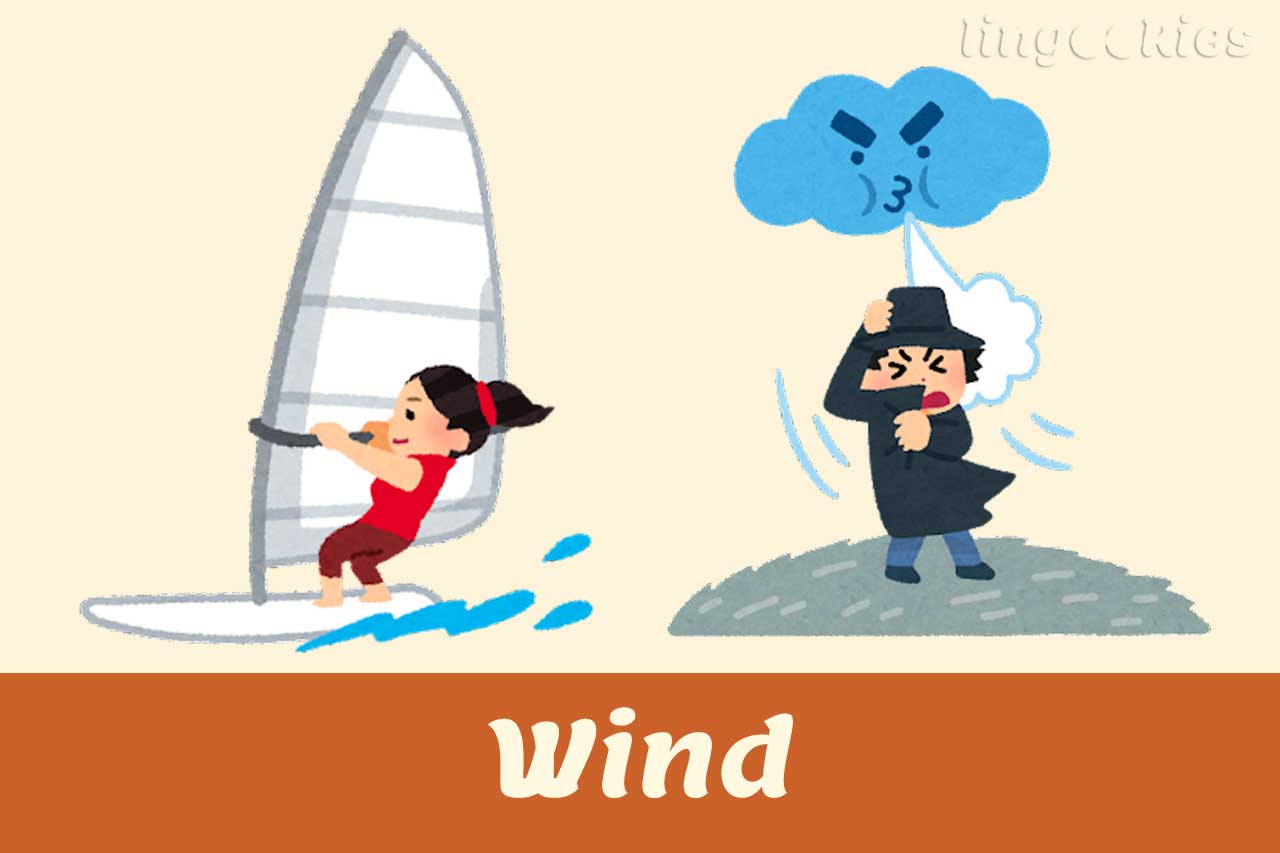How exactly do you say wind in Italian?
In this lesson, we will take a look at the different words you can use to talk about the wind in Italian and you will even learn some expressions featuring this word. Read on to learn them all!
Vento
Wind
Let’s get started! Iniziamo!
How do you say wind in Italian?
Vento
Vento is how you translate wind into Italian.
Il vento
The wind

It is a masculine noun, so it uses the articles il (definite, the wind), and un (indefinite, a wind).
| Singular | Plural | |
| Definite | Il vento | I venti |
| Indefinite | Un vento | Dei venti |
Title: Italian All-in-One For Dummies
Language: English / Italian
Publisher: For Dummies
Pages: 672
Learn to speak Italian like a native? Easy.
Italian All-in-One For Dummies appeals to those readers looking for a comprehensive, all-encompassing guide to mastering the Italian language. It contains content from all For Dummies Italian language instruction titles, including Italian For Dummies, Intermediate Italian For Dummies, Italian Verbs For Dummies, Italian Phrases For Dummies, Italian Grammar For Dummies, and Italian For Dummies Audio Set.
Its pronunciation is similar to ven-toh and it comes from the Latin word ventus, meaning “wind”. Make sure the final -o has a clean sound, because Italian vowel sounds are clean!
Italians never use ventoso, windy, to describe the weather. They just say that “there is wind”.
Oggi non c’è vento.
There is no wind today.
Il vento ha fatto cadere il vaso sul balcone.
The wind has knocked the pot on the balcony.
Ho sentito un vento freddo sul viso.
I felt a cold wind on my face.
Il vento era freddo ieri.
The wind was cold yesterday.

Verbs often used with wind in Italian
Soffiare is the verb that translates to blow. Its third-person present tense conjugation is soffia.
Il vento che soffia a 100 km/h può danneggiare le tegole dei tetti.
Wind blowing at 100 km/h can damage roof tiles.
Il vento soffia forte e si insinua tra le fessure delle persiane.
The wind blows strongly and creeps through the cracks in the shutters.
The wind in Italian can also spirare, which is a less intense version of “to blow”. That is why this verb is more often used with brezza, breeze.
Spira una brezza leggera.
A gentle breeze is blowing.

We then use the reflexive verb alzarsi, to get up or to rise, to say that the wind is rising and increasing.
Il vento si alza lungo il viale, facendo vorticare le foglie.
The wind picks up along the avenue, making the leaves whirl.
What kinds of wind are there in Italian?
There are a number of adjectives that are often associated with the wind in Italian. These are:
- vento forte (strong wind)
- vento leggero (gentle wind)
- vento caldo (warm wind)
- vento fresco (cool wind)
- vento gelido (icy wind)
- vento asciutto (dry wind)
- vento umido (humid wind)
- vento solare (solar wind)
- vento moderato (moderate wind)

Questo vento caldo arriva dal deserto.
This warm wind comes from the desert.
Nel venire qui, un forte vento ha fatto volare via il mio ombrello.
On my way here, a strong wind made my umbrella fly away.
The wind in Italian is also often accompanied by other nouns to form common collocations, such as:
- bava di vento (light breeze)
- raffica/folata/colpo di vento (gust of wind)
- rosa dei venti (compass rose)
- mulino a vento (windmill)
Una raffica di vento mi ha portato via il cappello!
A gust of wind took my hat away!
Una folata di vento gonfia le vele.
A gust of wind swells the sails.

➡️ Vento can also become venticello to translate “gentle breeze”. Learn how a suffix can describe a noun in the suffixes in Italian lesson!
Common wind types are:
- maestrale (northwest wind)
- scirocco (sirocco)
- tramontana (north wind)
Expressions featuring wind in Italian
There are a number of idiomatic expressions and sayings featuring the word for wind in Italian.
Parlare al vento
To speak uselessly
Literally: To speak to the wind
Essere veloce come il vento
To be as swift as the wind

Navigare col vento in poppa
To sail with a tailwind
Chi semina vento raccoglie tempesta
As you sow, so shall you reap
Literally: Who sows wind, reaps storm
Andare dove tira il vento
“To go on without encountering obstacles or problems”
Literally: To go where the wind blows
Qual buon vento ti porta?
What good wind brings you here?
And that’s the end of our lesson on how to say wind in Italian!
What next?
Now that you’ve seen how to say wind in Italian, you might want to keep learning Italian online with these free Italian resources:
❤️ If you liked this lesson on how to say wind in Italian, consider sharing it with your social media friends who are also studying Italian.




